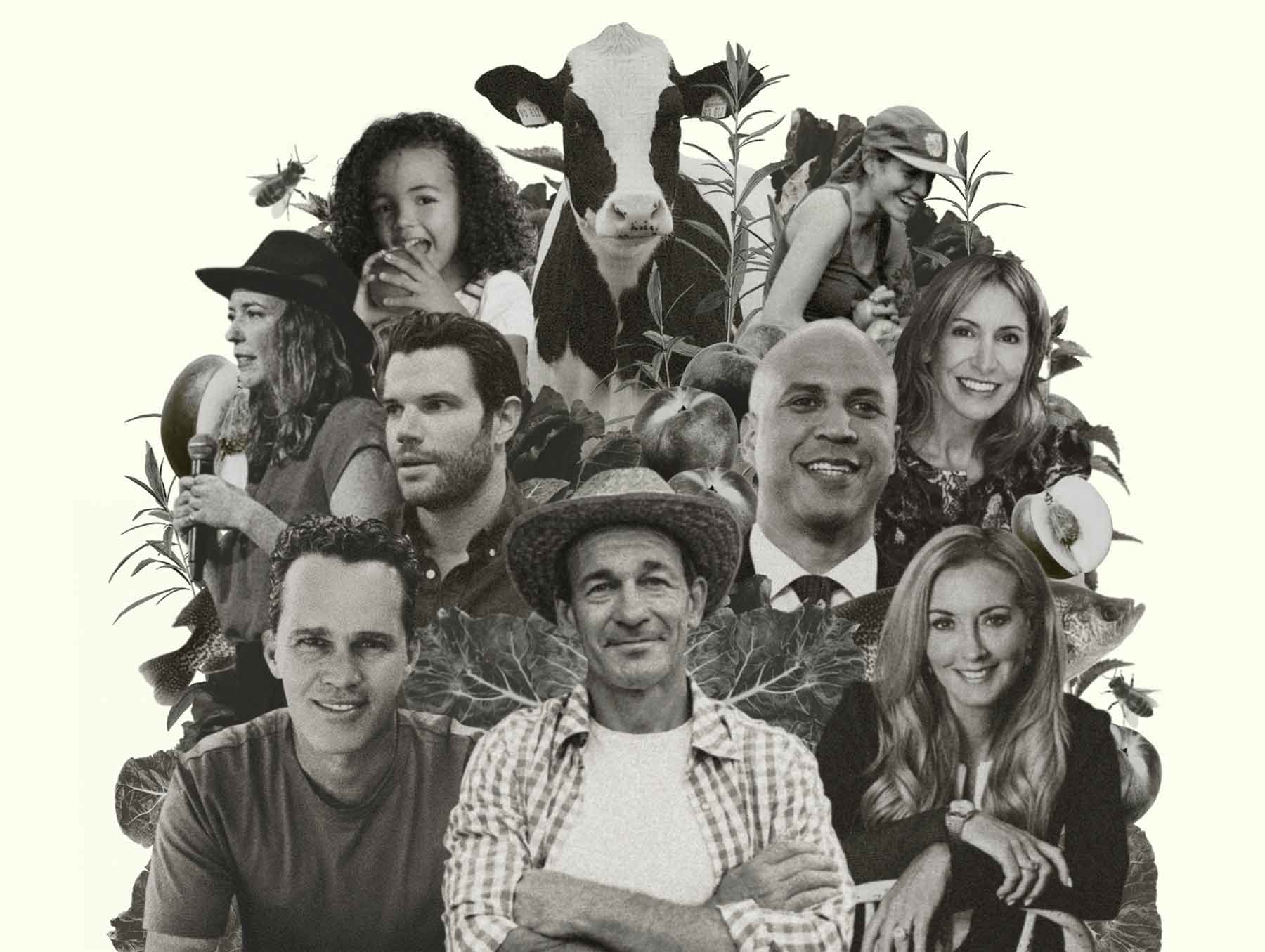Click below to scroll to each section
How do you pronounce glyphosate?
Why do farmers use glyphosate?
Intersection of glyphosate & human health
Intersection of glyphosate & planetary health
Intersection of glyphosate & farmers
How often are we exposed to glyphosate?
Is glyphosate registered as an antibiotic?
Why does the EPA say glyphosate is safe?
What are glyphosate alternatives?
What actions can I take to create change?
How Do You Pronounce Glyphosate?
Why Do Farmers Use Glyphosate?
First patented and introduced by Monsanto in 1974 for agricultural weed control in 1992, glyphosate, the active ingredient in RoundUp®, began to be used as a “ripening agent” or desiccant – stressing or killing plants, including wheat, to accelerate drying and speed the ripening of their fruit immediately before harvest. Glyphosate is now the most widely used herbicide in the world. Here’s a snapshot of why farmers use this tool as part of their land management practices:
1. Weed Management
Farmers use glyphosate because it is a quick and effective management tool that kills the unwanted weeds competing with their crops. In the short term, it’s much “easier” for farmers to spray a liquid chemical with a tractor than to weed by hand. Source
2. Bigger & Faster Yields
According to Monsanto-Bayer, glyphosate helps farmers protect their crops from pests, weeds, and diseases, which increases crop yields, specifically in grains (wheat and corn), fruits, vegetables, and potatoes. Source
3. Pre-Harvest Crop Desiccation
4. Marketing
Farmers and gardeners are attracted to Roundup because of the appealing marketing and advertisements. Ads often consist of a happy gardener killing weeds with ease, while Monsanto-Bayer refers to glyphosate as “sustainable farming practices.” Source
5. GMO Seeds
Glyphosate goes hand in hand with genetically modified seeds, called Roundup Ready. Farmers spray glyphosate if they are using Roundup Ready seeds because the Roundup Ready seeds are resistant to it. Source
6. Crop Insurance
In some states (Illinois, Indiana, Iowa, and Minnesota), farmers receive a “premium rate discount” on Monsanto’s GM seeds if they plant 75-80% of their field with it. Source
7. Federal Funds
Before GMO seeds, farmers used tractors to till the land in order to control weeds. However, to receive federal funds under the farm bill conservation program, farmers cannot till the soil because it causes erosion (this is a good thing). Instead of turning to regenerative no-till practices and principles, farmers started using more herbicides than before for a quick and efficient weed abatement. Source
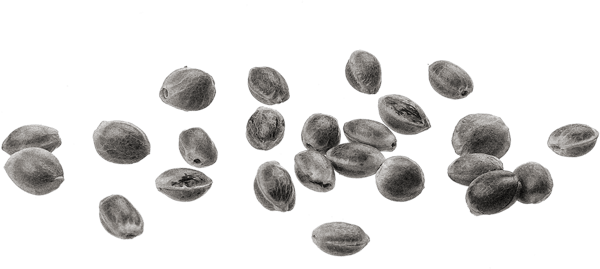
Glyphosate not only kills the weeds that farmers are targeting, but also the vital microorganisms in the soil.
While these benefits serve a purpose of short-term higher yields and quick harvests, it also creates unsustainable dependency on chemical use. This means farmers must also apply synthetic fertilizers to boost the weak and devastated soils. So, by using Roundup weedkiller, farmers must also use Roundup Ready seeds and synthetic fertilizers. Overtime, the weeds become resistant to Roundup and other herbicides, so farmers spray more using a “chemical rotation” system (alternating between Roundup and other, stronger herbicides).
Additionally, agrochemical industries have developed additional genetically modified seeds, called multiple herbicide-resistant weeds/crops, that can respond to a diverse range of herbicides and herbicide cocktails. Source, Source. So once plants become resistant to Roundup, there’s another GM seed they can buy to continue spraying other herbicides.
Glyphosate is also commonly used on public and private lawns, landscapes, schoolyards, golf courses, and parks to efficiently control and mitigate weeds.
Check out Non-Toxic Neighborhoods to learn how you can successfully ban glyphosate and other synthetic pesticides in your beloved outdoor spaces and neighborhoods.
Glyphosate x Human Health
Glyphosate kills bacteria, fungi, and plants by blocking the Shikimate enzyme pathway in these organisms.
The Shikimate pathway is responsible for producing the carbon ringed essential amino acids, such as tryptophan, that serve as critical building blocks for hormones and other proteins in animals and humans. By blocking the production of these critical nutrients in the soil and plant, the plant dies, thus the herbicide effect.
Glyphosate affects the relationships between microorganisms and the immune system
Increasing evidence shows that glyphosate and glyphosate-based herbicides exhibit cytotoxic and genotoxic effects,
increasing oxidative stress, disrupt the estrogen pathway, impair some cerebral functions, cause inflammation, and allegedly correlate with some cancers.
Glyphosate is a profound zonulin stimulator.
Research reveals glyphosate damages the epithelial tight junction tissue on contact, weakening those barriers which protect us on the inside from the barrage of other environmental toxins we are exposed to, among other things. Injury to the tight junction membrane in the gut can lead to intestinal permeability. With the collapse of the tight junction firewalls, all organ systems go under duress. Just behind that microscopically thin layer of protection of the endothelial cells that separate you from the outside world is the gastrointestinal lymphatic tissue (GALT). The GALT is a layer of immune cells that are vigilantly standing guard to address any breach in your firewall. It is estimated that 60-70% of the immune system, and more than 80% of the antibodies that the immune system produces, originate in the GALT.
Glyphosate has also been found to increase the risk of endocrine-disruption, celiac disease, autism, effect on erythrocytes, leaky-gut syndrome, etc.
Glyphosate x Farmers
Farmers and farmworkers can ingest residual spray of glyphosate, impacting various mental and physical health factors.
Long-term pesticide use has been linked to higher rates of depression and suicide among farmers and farm workers.
Suicide by pesticide ingestion is one of the three most common global means of suicide, causing over 150,000 deaths each year.
Transitioning land management practices from conventional toward regenerative is a risk for farmers, not only financially and mentally, but socially. Going against the grain often ostracizes farmers in their own communities.
Roundup creates a cycle of dependency for farmers- from seeds to sprays.
Agrochemical markets can raise the price of farmer inputs without risking their own market dominance.
Glyphosate x Planetary Health
Glyphosate kills other plants and animals that are exposed to it, including critical pollinator species, disrupting the entire food web.
Glyphosate kills microorganisms in the soil, depleting soil life and structure.
Glyphosate disrupts the microbial community in the bees’ digestive system, making them more vulnerable to infection.
Glyphosate binds to soil particles and thus mostly accumulates in top-soil.
Drift and runoff in soil flows right into groundwater, surface water, and water sediment exposing our oceans and waterways to chemicals that affect aquatic life.
Plants exposed to glyphosate display stunted growth, loss of green coloration, leaf wrinkling or malformation, and tissue death.
In fish and wildlife, glyphosate negatively affects the immune system, lymphocyte responses (antibodies), and increases the production of pro-inflammatory cytokines.
Animals exposed to formulated glyphosate herbicides have displayed anorexia, lethargy, hypersalivation, vomiting, and diarrhea.
Agricultural chemicals account for roughly ⅔ of all water pollution, causing “dead zones”.
Dead Zones are water areas that lack oxygen due to chemical contamination, which causes sea life to suffocate. Dead zones have been doubling in size every 10 years since 1960.
Glyphosate affects the crop health and roots of non-targeted plants and has been found to cause distortion in crops.
Over time, chemicals increase the salinity in soil, leading to desertification.
SOURCES:
https://www.science.org/content/article/common-weed-killer-believed-harmless-animals-may-be-harming-bees-worldwide#:~:text=Glyphosate%2C%20the%20world’s%20most%20widely,them%20more%20vulnerable%20to%20infection.
https://pubmed.ncbi.nlm.nih.gov/32203845#:~:text=Glyphosate%20has%20excellent%20properties%20of,leaky%2Dgut%20syndrome%2C%20etc
https://ehjournal.biomedcentral.com/articles/10.1186/s12940-016-0117-0
https://sustainableagriculture.net/blog/farmers-trapped-in-unsustainable-cycle-by-biotechnology-seed-consolidation/
http://npic.orst.edu/factsheets/archive/glyphotech.html
https://www.scientificamerican.com/article/high-rates-of-suicide-depression-linked-to-farmers-use-of-pesticides/
https://www.tandfonline.com/doi/full/10.1080/14754835.2020.1850241
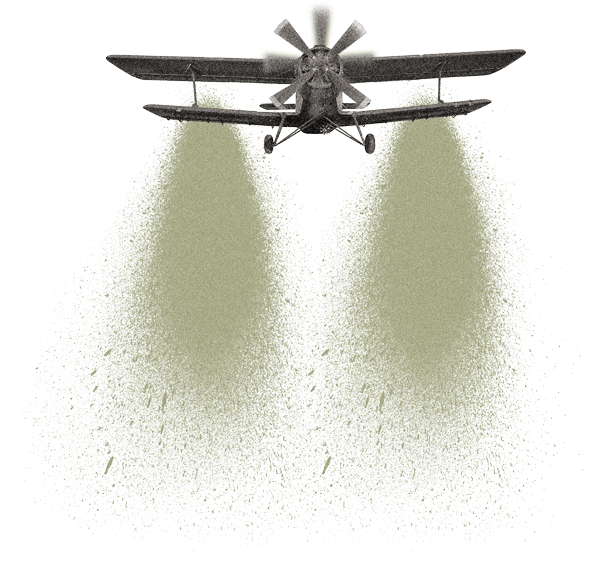
Glyphosate
is everywhere.
How Much Are We Exposed?
Currently, twice as many pounds of glyphosate are used worldwide than any other weed killer on the market. So by sheer volume, it’s our biggest problem.

WINE
95%
of studied wine and beer contained RoundUp
In 20 tested beers and wine (including organics) by education group U.S. PIRG
Source: Big Think
HONEY
33%
of store-purchased honey samples
Source: Science Direct, FDA
OATS & CEREALS
100%
of the 28 cereals/oats sampled from Quaker Oats and General Mills
EWG tests found Glyphosate in 100% of the 28 cereals and oats sampled from Quaker Oats and General Mills. Source: EWG
BREAST MILK / FORMULA
3 of 18
breast milk samples detected glyphosate
And microbe tests detected glyphosate in 6 of 40 infant formula samples.
Source: MAM
TAMPONS
85%
of all the samples were positive for glyphosate
62% for AMPA, which is the environmental metabolite; but in the case of cotton and gauze, the percentage was 100% percent. Source: InfoBae, RT
WHEAT
80-90%
of popular wheat-based products
Tests by the Canadian Food Inspection Agency found glyphosate contamination of popular wheat-based products such as pizza, pasta, and crackers. Source: EWG
HUMMUS
95%
of hummus had detectable levels
of glyphosate
Over one-third of the 33 conventional hummus samples exceeded EWG’s health-based benchmark for daily consumption.
Source: EWG
LEGUMES
47.7%
of beans, peas and lentils contained glyphosate
In 2015-2016, the Canadian Food Inspection Agency (CFIA) tested food products for glyphosate. Source: Environmental Defense
Is glyphosate registered as an antibiotic?
Why does the EPA say glyphosate is “safe”?
What are glyphosate alternatives?
Sign up to download Non-Toxic Neighborhoods’ Organic Toolkit featuring their Preferred Products List of organic alternatives.
What steps can I take to get glyphosate banned in my community?
Download Non-Toxic Neighborhoods’ free digital PLAYbook for a step-by-step approach on how to ban glyphosate in your neighborhood.
Watch the replay of this exclusive Farmer’s Footprint event as we bring together expert voices in human health, land stewardship, policy, and advocacy to discuss the topic of glyphosate.
We have an unprecedented opportunity to center the intersection of human and soil health as preparations for the White House Conference on Hunger, Health and Nutrition get underway.
We explored how we arrived where we are today in regards to the most widely used pesticide in our food system, the real experience of land stewards utilizing glyphosate and the complexity of transition, impact on human health and policy reform.
This is an invitation to embrace your curiosity to see a more broad and balanced look at the topic and become aware of the most powerful forms of action we can participate in today to create change.
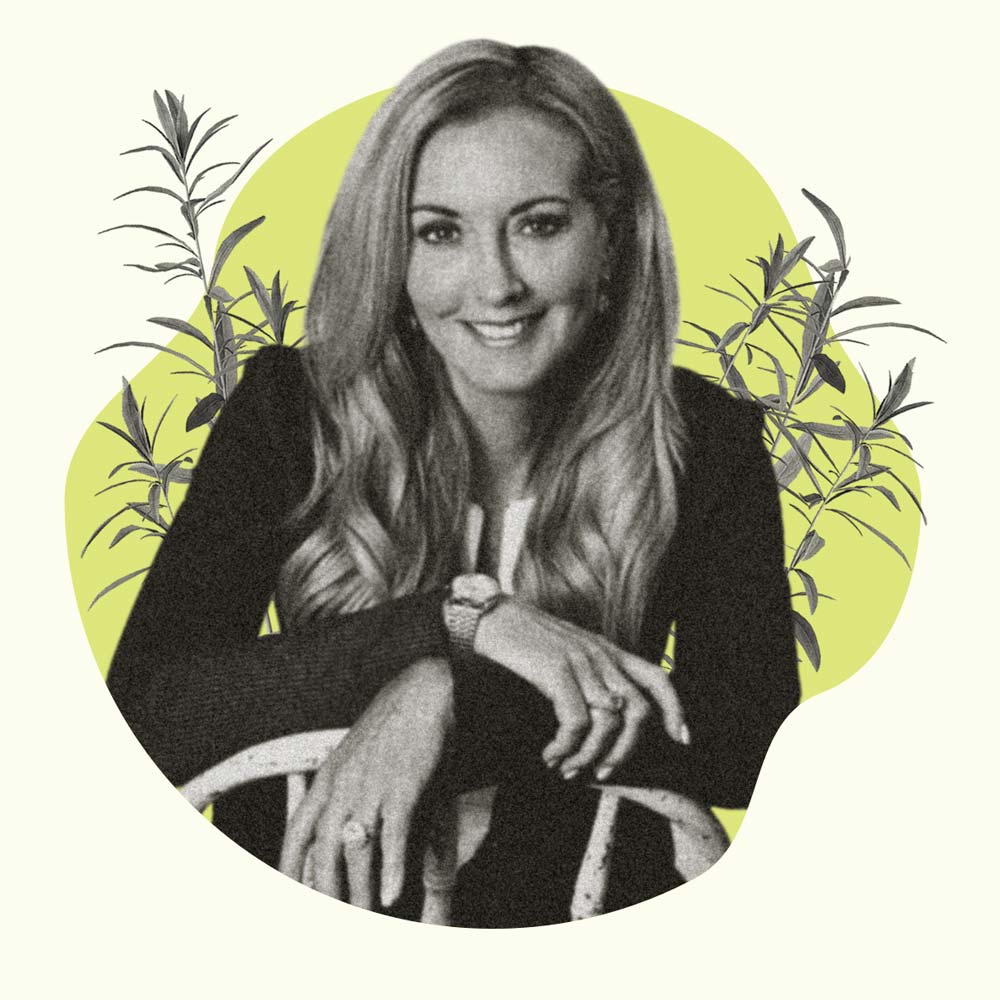
Carey Gillam | Moderator
Investigative Journalist
Carey Gillam is a veteran investigative journalist with more than 30 years of experience covering corporate news, including 17 years as a senior correspondent for Reuters international news service (1998-2015).
Learn More
She has written two books including an expose of Monsanto’s glyphosate business titled “Whitewash- The Story of a Weed Killer, Cancer and the Corruption of Science.” The book won the coveted Rachel Carson Book Award from the Society of Environmental Journalists in 2018. Her second book, a narrative legal thriller titled The Monsanto Papers, was released March 2. 2021. Gillam writes regularly for The Guardian and earlier this year launched The New Lede, a journalism initiative of the Environmental Working Group.
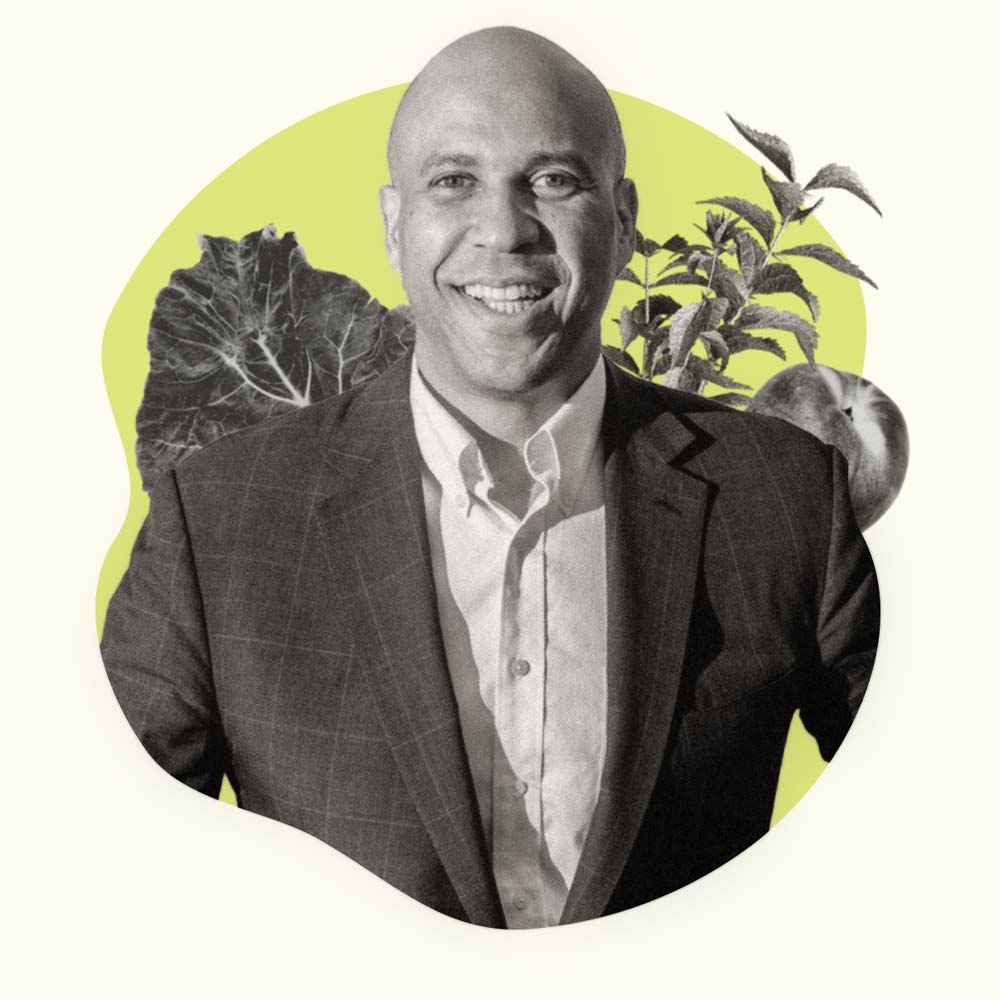
U.S. Senator Cory Booker | Panelist
American Politician, Attorney, and Author
Learn More
He has emerged as a national leader in the effort to fix our broken criminal justice system and end mass incarceration, helping craft the most sweeping set of criminal justice reforms in a generation, the First Step Act, which became law in December 2018. Booker has also worked to reform America’s broken food system, address our nation’s nutrition crisis, and end food Insecurity. Booker sits on the Judiciary Committee, the Foreign Relations Committee, the Committee on Agriculture, Nutrition, and Forestry, and the Small Business Committee.
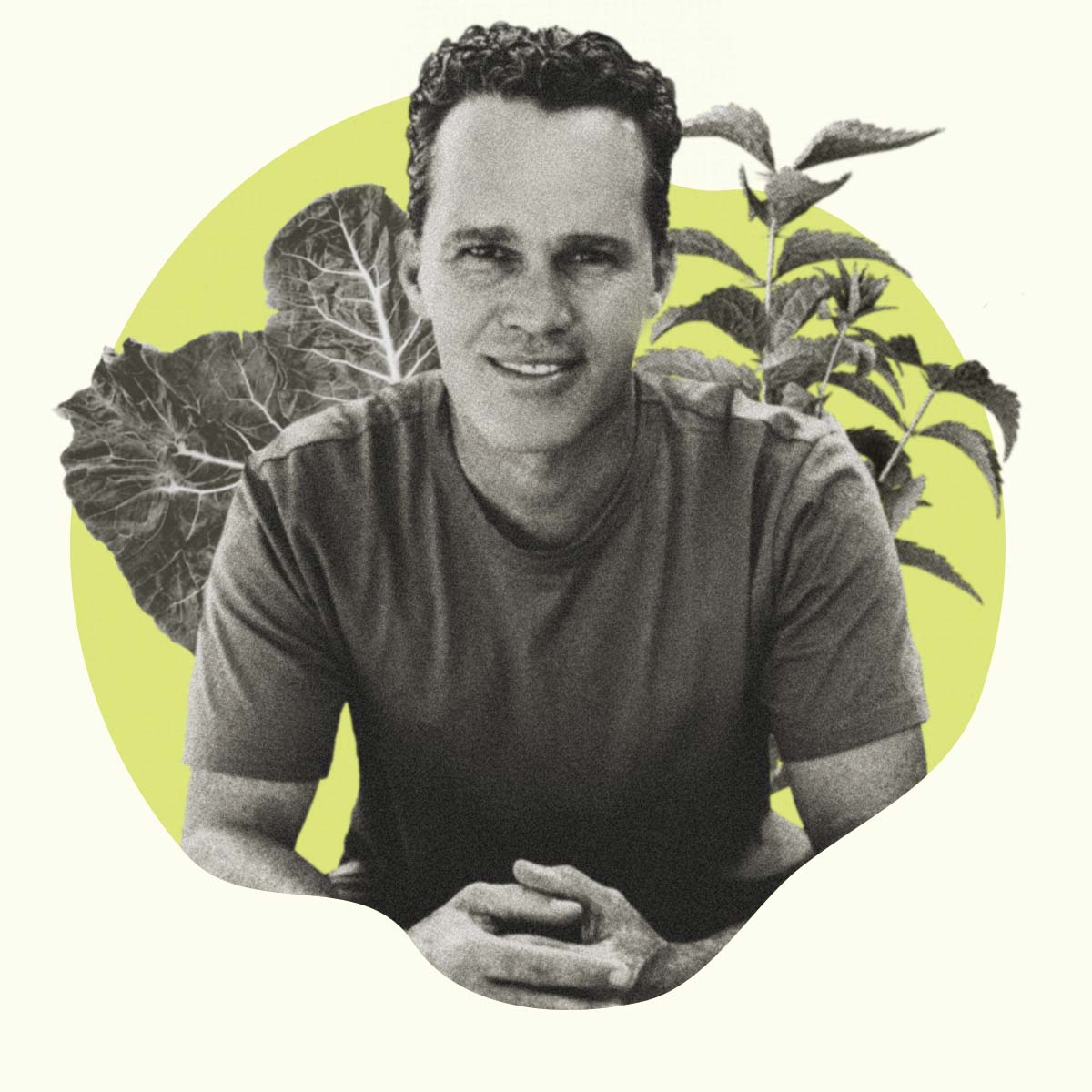
Zach Bush, MD | Panelist
Physician and Thought Leader
Zach Bush MD is a physician specializing in internal medicine, endocrinology and hospice care. He is an internationally recognized educator & thought leader on the microbiome, health, disease, and food systems.
Learn More
Dr Zach founded *Seraphic Group and the nonprofit Farmer’s Footprint to develop root-cause solutions for human and ecological health. His passion for education reaches across many disciplines, including topics such as the role of soil and water ecosystems in human genomics, immunity, and gut/brain health. His education has highlighted the need for a radical departure from chemical farming and pharmacy, and his ongoing efforts are providing a path for consumers, farmers, and mega-industries to work together for a healthy future for people and planet.
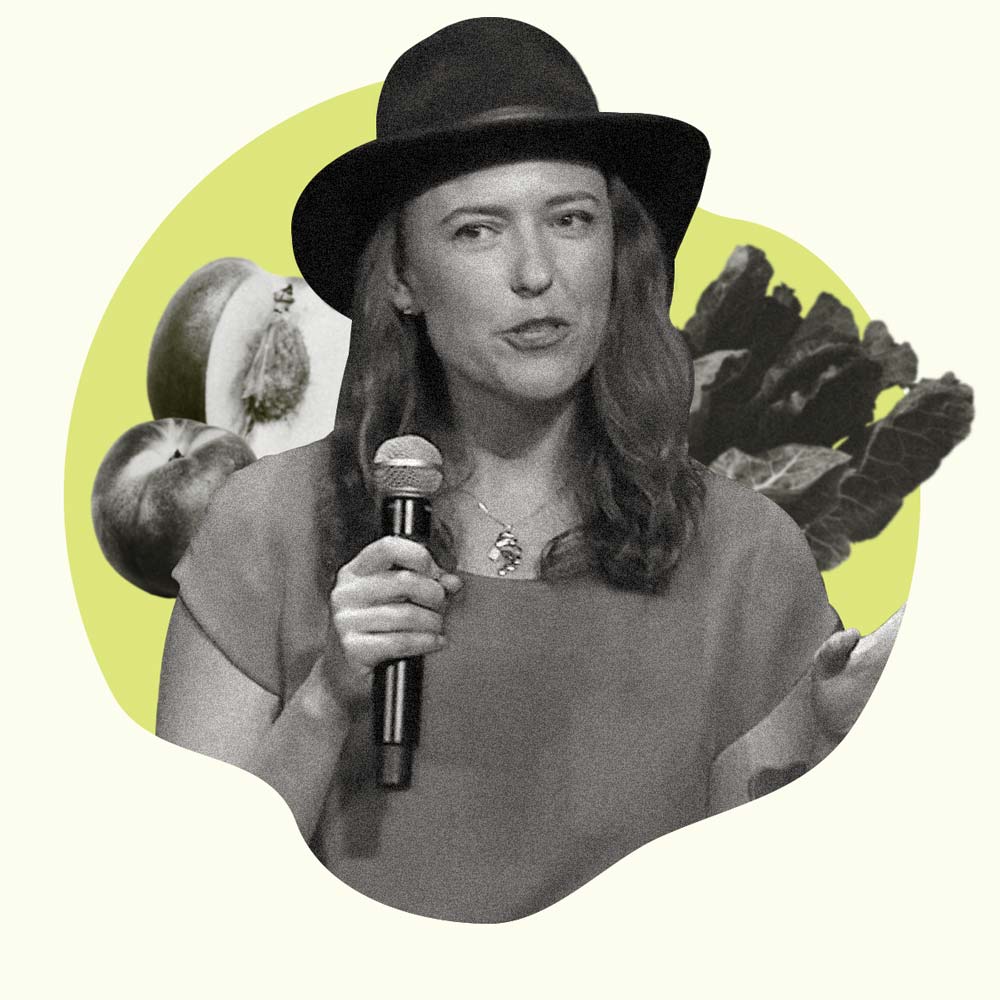
Calla Rose Ostrander | Panelist
Strategic Advisor, Climate Change and Agricultural Policy
Learn More
She received her BA in International Political Economy from the University of Puget Sound where she wrote her thesis on the political
economy of environmental policy in developed countries. She has been a fellow with environmental non-profits Earth Economics and Rocky Mountain Institute and worked for the cities of Aspen Colorado and San Francisco California creating climate action and adaptation plans, internal sustainability reporting structures and training and community green business and green grant programs. For the past seven years Calla Rose has worked as an advisor for NGO’s, family foundations, individuals and governments interested in advancing regenerative and climate smart agriculture. She currently works part time as the Natural & Working Lands Climate Coordinator for the California Natural Resources Agency and part time with Terra Regenerative Capital.
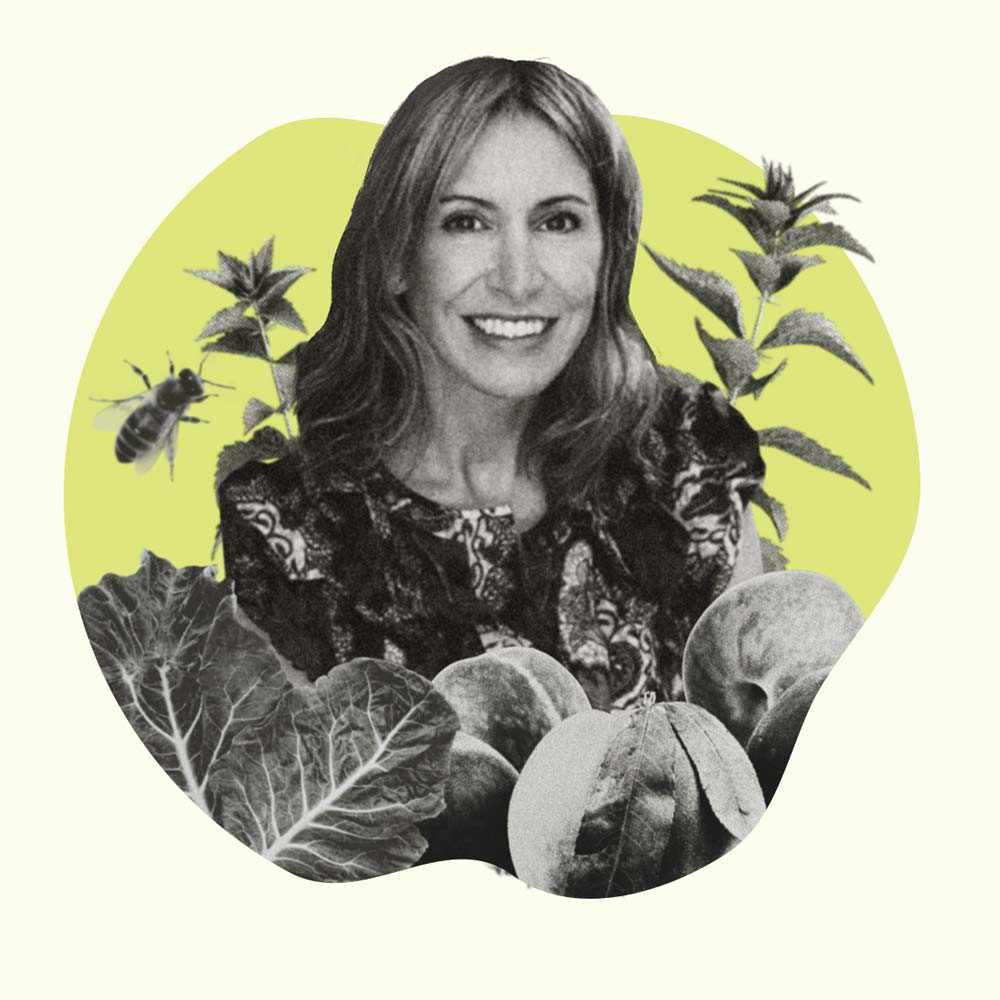
Kelly Ryerson | Panelist
Environmental Health Writer, Filmmaker
Learn More
Currently writing under the name Glyphosate Girl, Kelly previously worked in investment banking, private equity, and NASA technology commercialization. She has a BA from Dartmouth College, an MBA from the Stanford Graduate School of Business, and completed training in integrative health coaching at Duke Integrative Medicine.
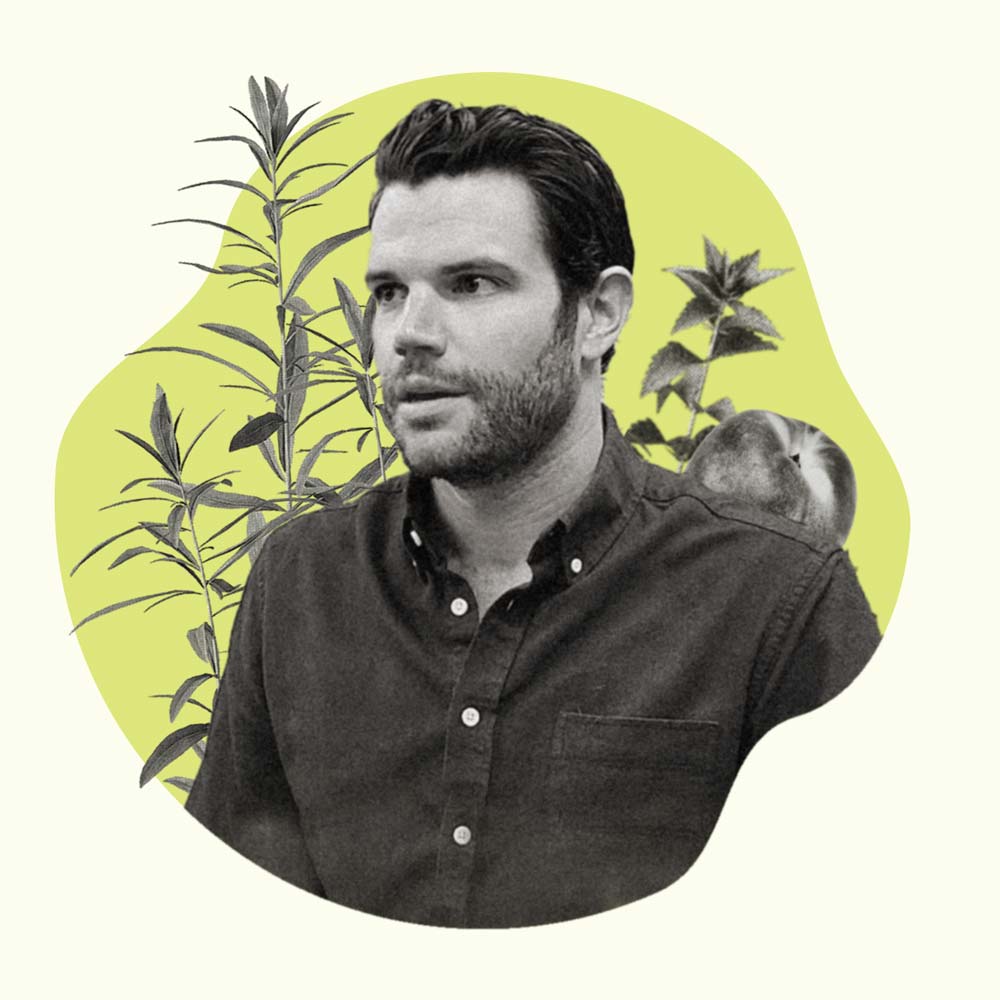
Matt Nicoletti | Panelist
Director of Business Development, Penny Newman Grain Co
Matt Nicoletti is a Managing Partner and serves as Director of Business development at Penny Newman Grain Co, an international grain and feed ingredient trading company.
Learn More
He also oversees the company’s strategic venture investment arm, which focuses on early-stage AgTech and Regenerative Ag companies and is the head of their burgeoning agronomic division.
A Call To Ban Glyphosate and other Chemical Desiccants
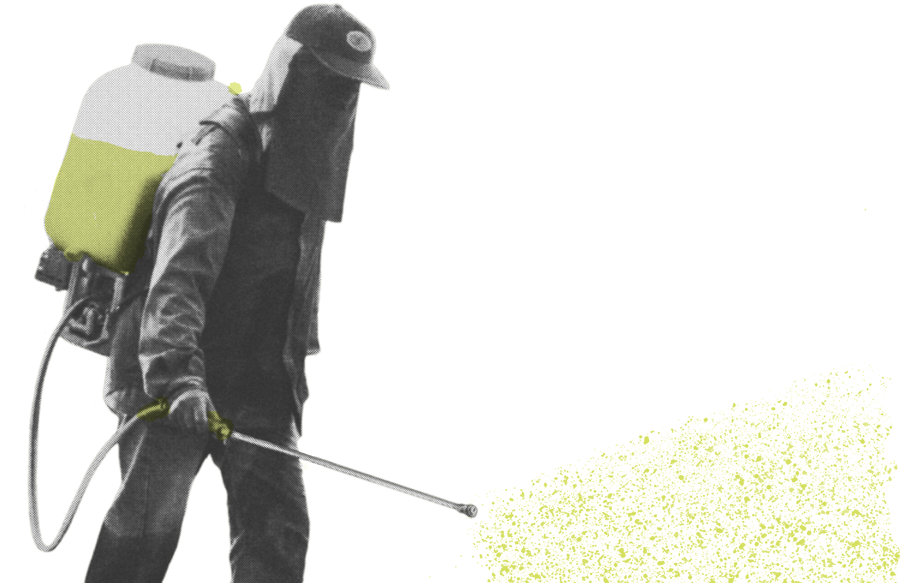
Our opportunity
– as consumers, farmers, businesses, local governments, and beyond – is to build a new food system to support the health of all the creatures, great and small, that create the web of life that has supported the origin and arc of human life.
Through regenerative agriculture and fundamental changes in our approach to soil and food system management, we can revitalize this planet beginning at the foundation of healthy soil and water systems.
One action we can collectively take today is to sign and share this petition to phase out the use of glyphosate as a desiccant and GMO crop treatment. Tell the EPA, USDA, FDA and President Biden to phase out the use of glyphosate and other chemical desiccants.
The health of our planet and its people depends on our collective advocacy, and every signature matters.
SHARE NOW

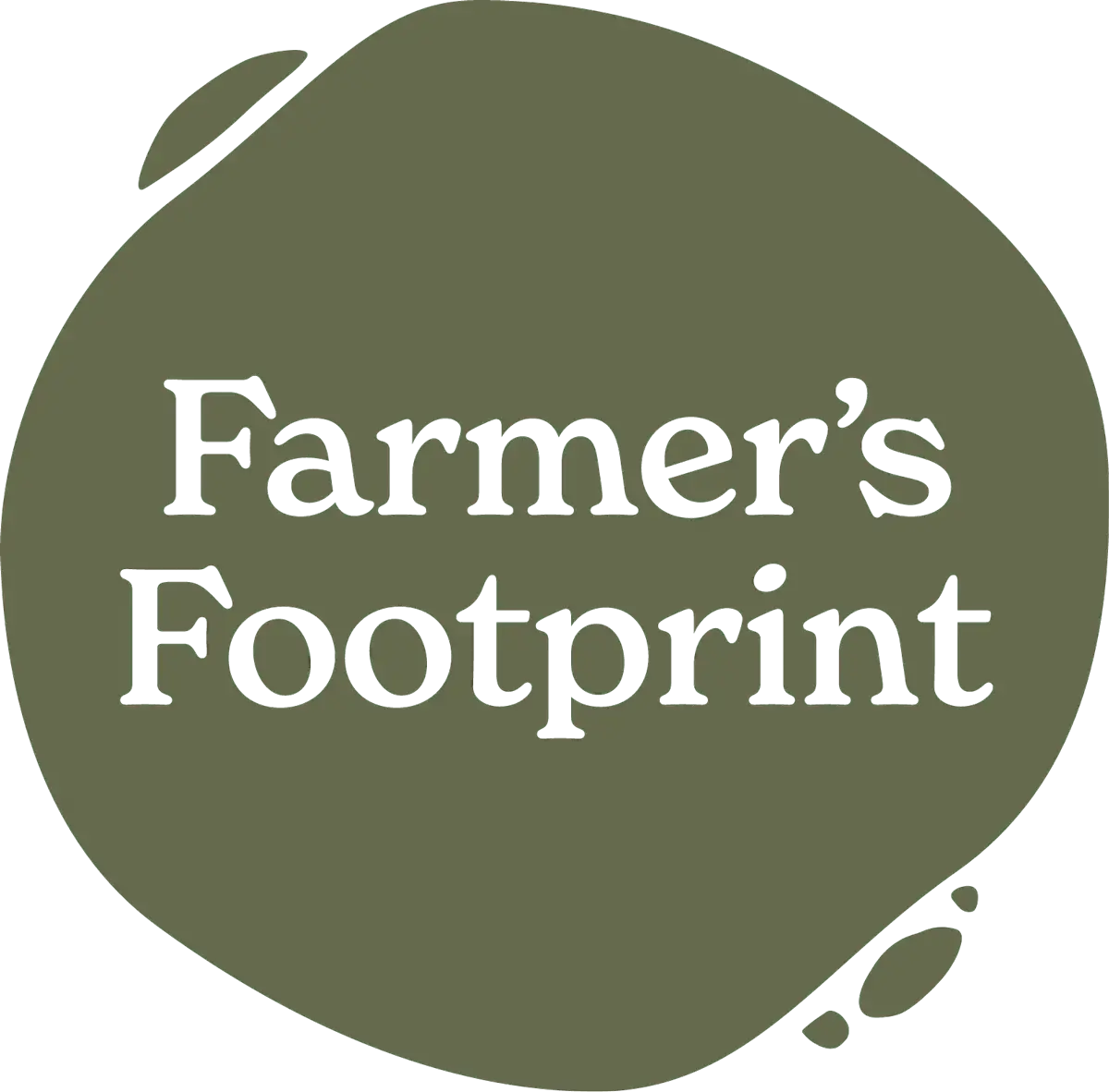
Soil health is arguably the most important element impacting our health, the health of future generations, and the health of this planet we call home.
Join us for this exclusive dialogue with Zach Bush, MD (Founder of Farmer’s Footprint), US Senator Cory Booker, Kelly Ryerson, Calla Rose Ostrander and Matt Nicoletti with lead moderator and journalist Carey Gillam.
